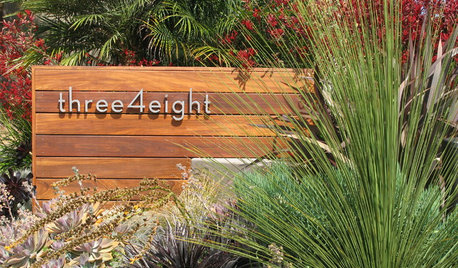Payoff of loans - what documents should I end up with?
Debbie Downer
11 years ago
Related Stories

ACCESSORIES8 Low-Cost Luxuries With a Big Payoff
Consider the small stuff — like switch plates and throw pillows — to give your home a touch of class
Full Story
BATHROOM DESIGN15 Ways to Warm Up Your Bathroom for Winter
Keep the chill away in body and spirit with everything from warm colors to high-end bathroom features
Full Story
GARDENING AND LANDSCAPINGHow to Make a Pond
You can make an outdoor fish paradise of your own, for less than you might think. But you'll need this expert design wisdom
Full Story
HOUZZ TOURSMy Houzz: High End Meets Budget Friendly in Toronto
Splurging selectively and saving elsewhere, a Canadian family gets a posh-looking home that matches their vision
Full Story
BOOKSCan Tidying Up Result in Life-Changing Magic?
Organizing phenom Marie Kondo promises big results — if you embrace enormous changes and tough choices
Full Story
You Said It: Hot-Button Issues Fired Up the Comments This Week
Dust, window coverings, contemporary designs and more are inspiring lively conversations on Houzz
Full Story
BATHROOM COLOR8 Ways to Spruce Up an Older Bathroom (Without Remodeling)
Mint tiles got you feeling blue? Don’t demolish — distract the eye by updating small details
Full Story
DESIGN PRACTICEHow to Set Up Your Design Studio at Home
Learn from an architect how to create a workspace that fuels your practice and feeds you inspiration
Full Story
GARAGES6 Great Garage Conversions Dreamed Up by Houzzers
Pull inspiration from these creative garage makeovers, whether you've got work or happy hour in mind
Full Story
REMODELING GUIDESMovin’ On Up: What to Consider With a Second-Story Addition
Learn how an extra story will change your house and its systems to avoid headaches and extra costs down the road
Full StorySponsored
Custom Craftsmanship & Construction Solutions in Franklin County
More Discussions









berniek
popeda
Related Professionals
Martinsville Architects & Building Designers · Plainfield Architects & Building Designers · Rocky Point Architects & Building Designers · White Oak Architects & Building Designers · Bay City General Contractors · Conway General Contractors · Geneva General Contractors · Green Bay General Contractors · Klahanie General Contractors · Saint Andrews General Contractors · Waterville General Contractors · West Melbourne General Contractors · Kendale Lakes Home Stagers · South Orange Home Stagers · Wareham Interior Designers & DecoratorsDebbie DownerOriginal Author
brickeyee
redcurls
brickeyee
kaismom
RooseveltL
brickeyee
Debbie DownerOriginal Author
brickeyee